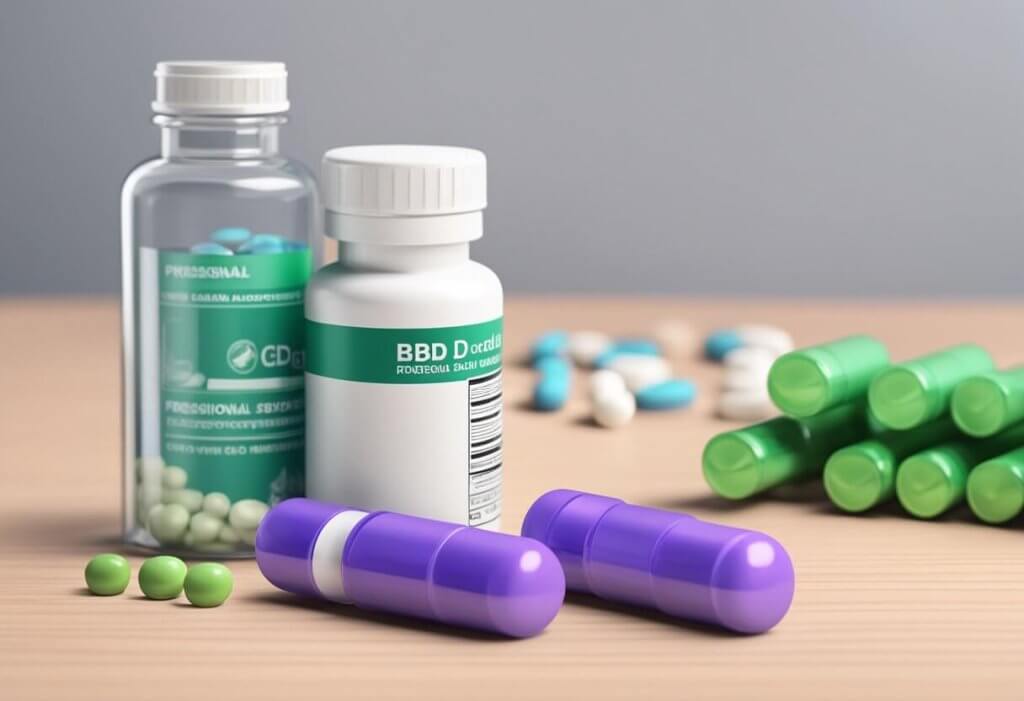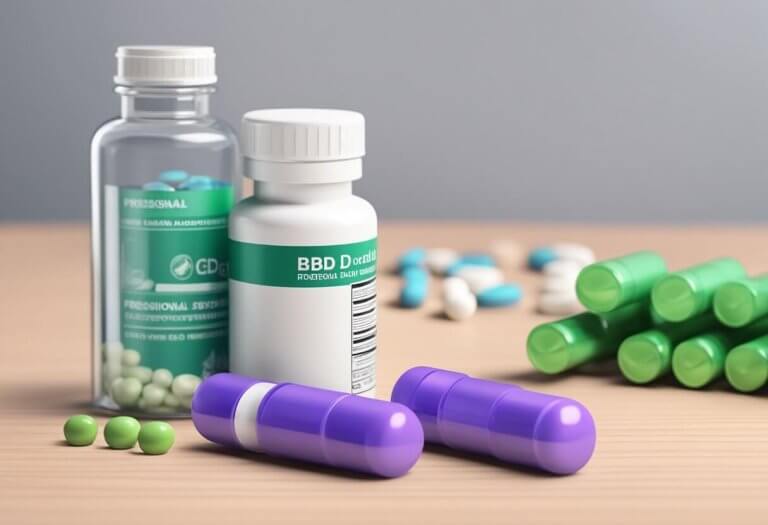Exploring Natural Alternatives for Inflammation Control
Disclaimer: The anecdotal benefits of CBD mentioned on this website are based on preliminary research and individual user experiences. All information presented here is not meant to substitute for or replace information from health care practitioners. Please click here for our full disclaimer, including side effects, FTC position, etc.
For those grappling with chronic inflammation or autoimmune conditions, the reliance on steroids can feel like a double-edged sword. While these powerful medications offer relief, their long-term use often comes with a host of unwanted side effects.
Amidst this struggle, a growing number of individuals are turning to CBD as a potential ally in their quest for a more balanced, sustainable approach to managing their health.

If you’re among the countless people seeking an alternative or complementary treatment to help reduce your reliance on steroids, you’re not alone.
The search for a natural solution that can work in harmony with your body’s own healing mechanisms has led many to explore the potential of cannabidiol (CBD), a non-psychoactive compound found in the cannabis plant. With its promising anti-inflammatory and immunomodulatory properties, CBD has emerged as a beacon of hope for those looking to take control of their health and live well.
Join us as we delve into the fascinating world of CBD and uncover how this ancient remedy might just hold the key to a steroid-free future.
Potential Advantages of CBD over Steroids:
| CBD | Steroids |
|---|---|
| Fewer side effects | More side effects |
| Non-psychoactive | Can cause mood changes |
| Anti-inflammatory | Anti-inflammatory |
| Antioxidant benefits | No antioxidant effects |
CBD in Therapeutic Use and Reducing Steroid Dependence

Cannabidiol, or CBD, is being explored for its anti-inflammatory properties that may offer an alternative to corticosteroids in some medical conditions. With a growing body of research, CBD’s role in potentially reducing the dependence on traditional steroids is gaining attention.
Anti-Inflammatory Properties of CBD
Research suggests that CBD may act on the body’s cannabinoid receptors to exert anti-inflammatory effects. Such properties are beneficial in conditions like arthritis, where joint swelling and pain levels are common issues.
Unlike steroidal anti-inflammatories, CBD does not lead to weight gain or adverse psychological effects, making it an attractive option for long-term management.
“CBD offers a promising alternative or complementary treatment to corticosteroid medications for various inflammatory conditions.” (Source)
Dr. Shivendra Singh, PhD, Professor at University of South Carolina.
Potential Benefits for Chronic Conditions
CBD has shown promise in managing chronic conditions beyond inflammation. For example, it could influence blood sugar levels, potentially assisting in diabetes management.
Additionally, its antioxidative properties might play a role in reducing the risk of tumors and cardiovascular disease. Though there is potential, the appropriate dosage and extract for each condition must be determined to ensure safety.
Reducing Steroid Use with CBD Supplementation
Given CBD’s therapeutic benefits, it is being considered as a supplement to reduce or replace corticosteroid use. This could lead to fewer cases of steroid-induced side effects, like allergic reactions, fatigue, or resistance to the stress hormone.
Fact: Studies suggest CBD may have a steroid-sparing effect, reducing the need for steroids by providing anti-inflammatory benefits without the harsh side effects.
https://projectcbd.org/health/cbd-as-a-steroid-sparing-treatment/
Capsules, gummies, and edibles are popular forms of CBD that allow for easy dosage control.
However, it is crucial to note that while CBD might help manage symptoms without the weight gain associated with steroids, it is not a cure-all and should be used with caution. It should also adhere to farm bill regulations and acknowledge that it lacks the intoxicating effects of tetrahydrocannabinol (THC).
The only FDA-approved CBD medication, Epidiolex, highlights CBD’s potential in therapeutic use, though research into broader applications and long-term effects is ongoing.
Promising Study: A 2020 study found that adding CBD to corticosteroid treatment for asthmatics allowed for a reduced steroid dosage while maintaining efficacy.
https://www.healtheuropa.com/championing-cbd-as-a-proven-alternative-to-steroid-treatment/115889/
Frequently Asked Questions

This section tackles some common inquiries about the relationship between CBD and steroids, especially when considering their combined use or CBD as an alternative for anti-inflammatory purposes.
Are there any interactions between CBD oil and steroids?
Research is ongoing to fully understand how CBD oil and steroids might interact within the body. It’s important for individuals to consult healthcare providers for personal advice on this matter.
Is it safe to take CBD with prednisone for managing inflammation?
Safety concerns about taking CBD with prednisone should be addressed by a healthcare professional, as they can assess individual health conditions and potential interactions.
Could CBD oil serve as a potential alternative to steroids in some situations?
Some studies suggest that CBD oil could potentially serve as an alternative to steroids in certain inflammatory conditions, but more research is needed to validate its efficacy and safety as a replacement therapy.
What should I know about giving CBD to my pet if they’re already on prednisone?
Pet owners should be cautious about adding CBD to their pet’s regimen if the pet is already on prednisone. A veterinarian’s guidance is crucial before making any changes to a pet’s treatment plan.
Are there any known side effects when combining prednisone with CBD products?
Knowledge of potential side effects from combining prednisone with CBD products is limited. Consultation with a healthcare provider can help determine the risk of side effects based on individual health factors.
Can CBD be considered a non-steroidal option for anti-inflammatory needs?
CBD is being explored as a non-steroidal option for addressing inflammation. However, solid conclusions on its anti-inflammatory efficacy are yet to be drawn compared to traditional steroids.
Testimonial: “After years of taking prednisone for my Crohn’s disease, I added CBD to my regimen. The CBD helped reduce inflammation so I could lower my steroid dose and avoid the harsh side effects.”
Jessica M., CBD user

